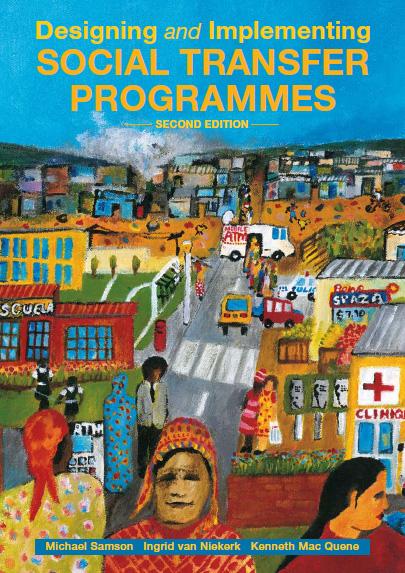Designing and Implementing Social Transfer Programmes
In 2011, EPRI released the second edition of its policy manual, Designing and Implementing Social Transfer Programmes. Funded by the Department for International Development (DFID/UKaid), the guide was written to assist government policymakers and donor agency officials in designing, implementing and managing cash-based social transfer programmes. The book is also a useful resource for policy advocates who require evidence that social transfer programmes are both feasible and desirable.
Topics covered include the role, definition and types of cash-based social transfers; how to select the appropriate social transfer instrument; how to assess the policy context and institutional framework; issues to consider in programme design; and overviews of the main questions, evidence and debates around targeting and conditionalities.
The second edition draws upon an updated and growing global evidence base and includes new material on payment arrangements and gender, as well as additional information on delivery systems, managing fiduciary risk, and rooting programmes within an evidence-based approach.
Download individual Chapters:
Click on the titles below to download chapters individually.
Chapter 2: Analysing the policy context for social transfers
Chapter 3: Rooting social transfers within an evidence-based approach
Chapter4: The institutional framework for social transfers
Chapter 6: Selecting social transfer instruments
Chapter 8: Targeting social transfer instruments
Chapter 9: Designing conditional cash transfer schemes
Chapter 10: Design issues for public works programmes
Chapter 11: Available resources, affordability and sustainability
Chapter 13: Payment arrangements for cash transfers
Chapter 14: Managing fiduciary risk and protecting programme success


